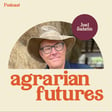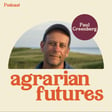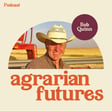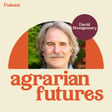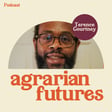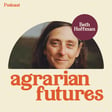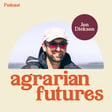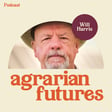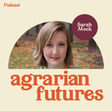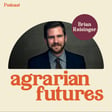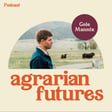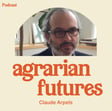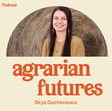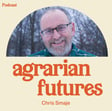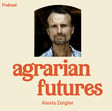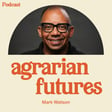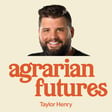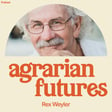
Bringing Back the Community Bank with Charley Cummings
If most of us are honest—banking probably isn’t the first thing that comes to mind when we think about social and environmental change. But what if it could be?
In today’s episode, we talk with Charley Cummings, CEO of Walden Mutual, an innovative bank that’s restoring a community-driven model that has largely disappeared in the face of 50 years of banking consolidation.
Charley walks us through the recent history of US banking and how the fundamental thesis behind it has changed, leaving many behind. He explains how is own experience as the founder of Walden Local - a sustainable meats company - helped him see the lack of a local financing option that embodied his values. From there, Charley dives deep into their community driven model, showcasing what a relationship-driven, place-based banking model could mean for the future of local agriculture and our food systems at large.
In this episode, we cover:
- Charley’s political origins and how he came to see the need for a new model for community financing.
- The essential role that community banking played in building the American middle class.
- How shareholder primacy - which is taken as gospel now - is a societal construct that arose in the 1970s and has fundamentally reshaped our banking system.
- How they are restoring character based lending through a fusion of modern tools and a relationship driven approach.
- Financing local economic “ecosystems” in order to create mutually
- What a place-based banking model could mean for the future of food systems.
- And much more...
More about Charley:
Charley Cummings is the founder and CEO of Walden Mutual Bank, the first newly chartered mutual bank in the US in 50 years. Walden Mutual lends to sustainable food and agriculture businesses in New England and New York, while offering impact driven online and mobile deposit accounts to businesses and consumers. Charley previously founded and ran Walden Local, Inc., now the leading brand of locally produced pasture-based meat in the Northeast. Previously he worked at various venture-backed clean technology companies and co-founded a non-profit advocacy organization formed in support of the country's first proposed offshore windfarm. Charley began his career at Monitor Group (now part of Deloitte) and earned a BA from Brown University and an MBA from Harvard Business School. He lives with his wife, three children and small flock of Kitahdin sheep in Hopkinton, New Hampshire.
Agrarian Futures is produced by Alexandre Miller of You Should Have a Podcast, who also wrote our theme song.
